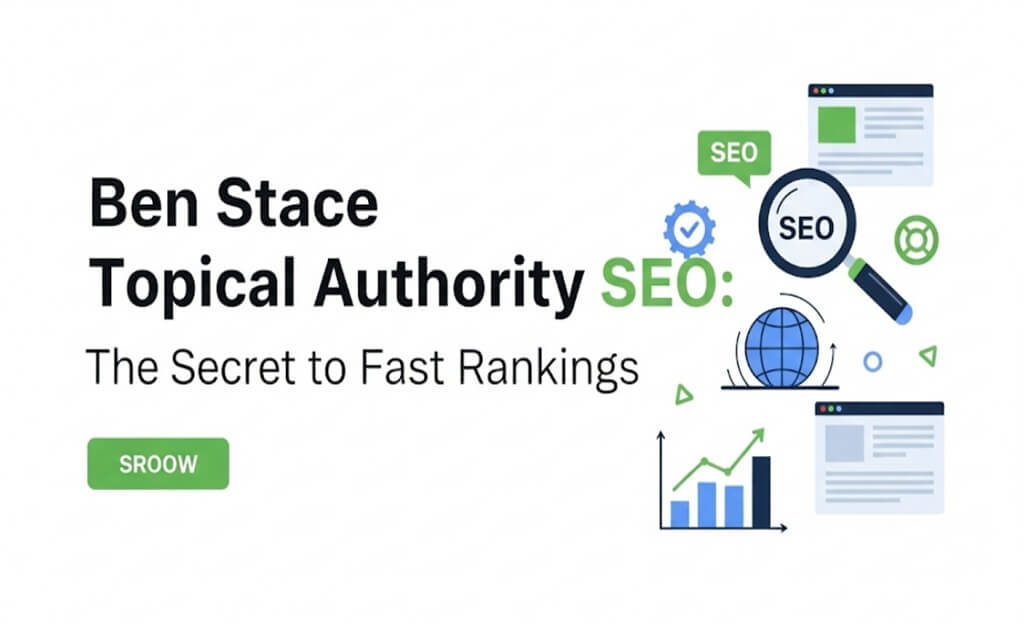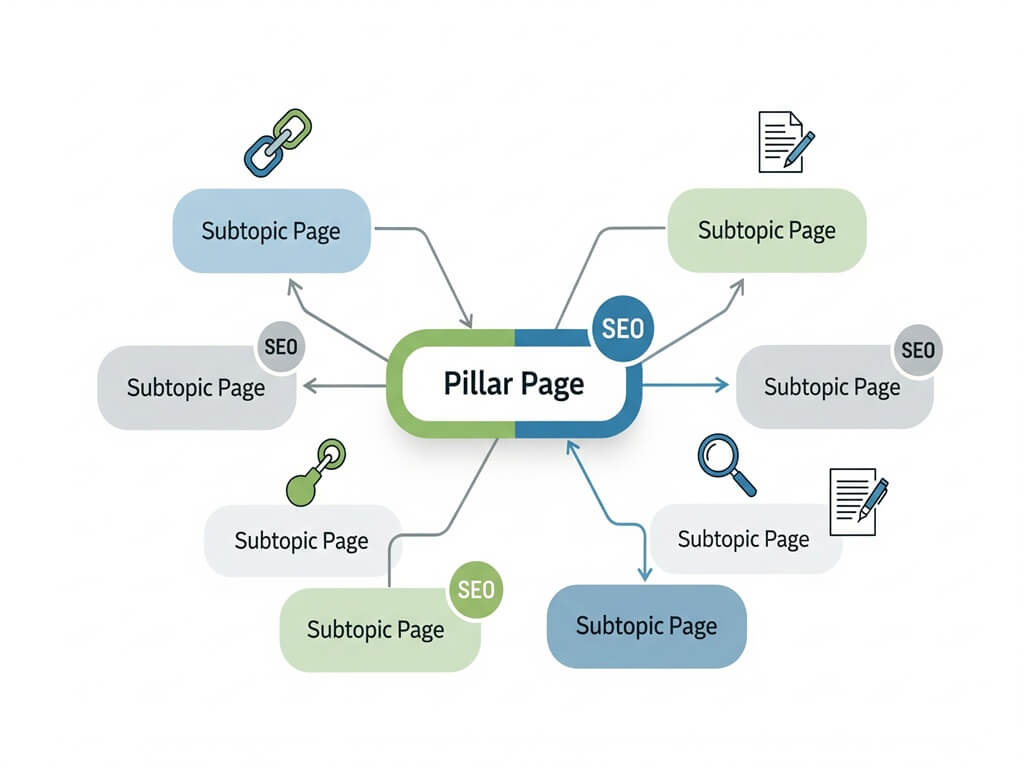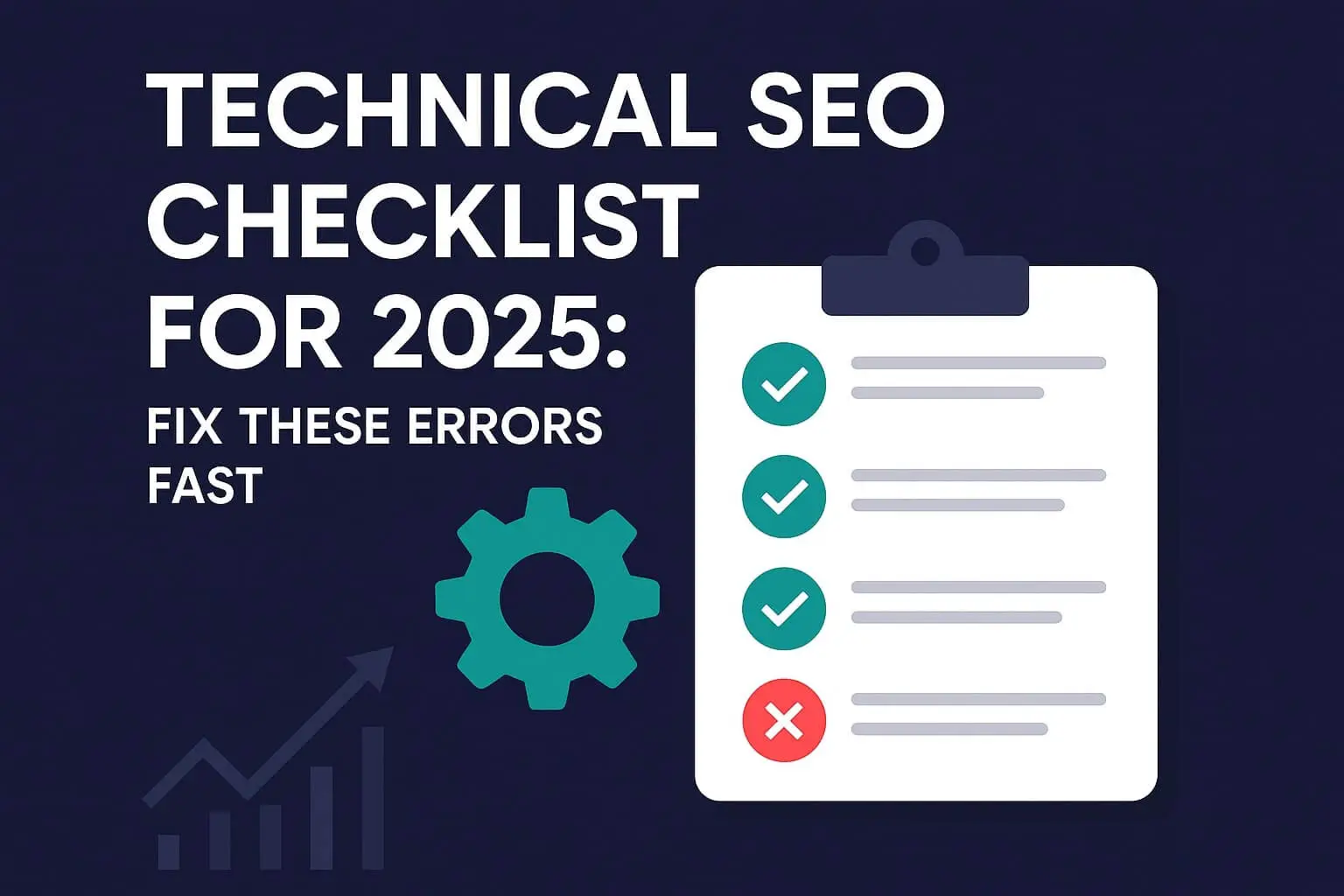
If you’ve been following SEO conversations lately, you’ve probably come across the concept of Ben Stace Topical Authority SEO. Known for his practical yet powerful approach to topical authority SEO, Ben has been shaking up the way marketers think about rankings.
Instead of chasing backlinks endlessly or spamming content, his method focuses on building trust with Google by owning a topic completely. And the result? Faster rankings with less content.
In this guide, we’ll break down Ben Stace’s topical authority framework, why it works so well, and how you can apply it to dominate your niche.
What Is Topical Authority SEO?
Topical authority is Google’s way of measuring how credible, trustworthy, and comprehensive your site is on a particular subject.
Think of it like this: if you only have one article about “SEO services,” Google sees you as just another voice. But if you cover every angle of SEO services strategies, FAQs, tools, challenges, case studies suddenly, Google treats your site like a trusted source.

Why Ben Stace’s Approach Works So Fast
Ben Stace didn’t invent topical authority, but he refined it into an actionable, repeatable process that’s winning attention. Here’s why it works:
Content Clustering – Instead of random blogs, content is structured in clusters around a pillar page.
Semantic Coverage – Articles use natural language processing (NLP) keywords Google expects to see.
Search Intent Matching – Pages are written for every stage: informational, navigational, and transactional.
Authority Building – Interlinking makes your site a web of expertise.
Faster Indexation – Because Google immediately recognizes your site as “the expert” on that topic.

Step-by-Step Framework to Apply Ben Stace’s Topical Authority SEO
1. Define Your Core Topic
Pick one money-making topic. Example: “SEO Services in Pakistan.”
2. Create a Pillar Page
Write a comprehensive, 3,000+ word guide covering the entire topic at a high level.
3. Build Supporting Articles
Create 10–20 subtopic blogs answering related questions. Example:
What is SEO in Pakistan?
SEO cost in Lahore, Karachi, Islamabad
SEO myths and truths
4. Use Internal Linking
Link every subtopic back to the pillar page. This signals authority.
5. Optimize for Semantic Search
Include LSI keywords Google expects (tools like SurferSEO, NeuronWriter, or free NLP extractors help).
6. Refresh & Update Regularly
Google rewards freshness + completeness. Keep updating.

Semantic Content Networks by Ben Stace: Reshaping SEO Through Structure
Search Engine Optimization (SEO) has gone through many eras—keyword stuffing, backlink chasing, content farms, and algorithm-driven shifts. But in 2025, the conversation has shifted from raw keyword frequency to topical authority and structured content strategies. At the center of this change is Ben Stace’s concept of Semantic Content Networks (SCNs), a framework that helps websites align with how modern search engines and large language models actually process information.
Unlike traditional keyword-driven SEO, Semantic Content Networks treat information as a web of relationships. Instead of focusing on one page to target one keyword, SCNs map how different topics, subtopics, and entities connect to each other. This creates a structured, interlinked system that mirrors how Google’s Knowledge Graph and Natural Language Processing (NLP) models understand meaning.
In other words, if traditional SEO was about individual trees, Semantic Content Networks are about cultivating the entire forest.
Case Study: How Topical Authority Beats Random Blogging
One digital agency applied Ben Stace’s topical authority SEO to “Local SEO for Dentists.”
Before: 30 random blogs, no rankings.
After 90 Days: 1 pillar page + 15 supporting blogs.
Results: Ranked in the top 5 for “Dentist SEO Services” with 20% more organic leads.
👉 The magic wasn’t backlinks it was topical depth.
Quick Checklist: Apply This Today
✅ Choose 1 profitable topic
✅ Write 1 comprehensive pillar page
✅ Create 10–20 supporting blogs
✅ Interlink all content
✅ Use LSI + semantic keywords
✅ Keep updating your content
FAQs
Q1. What is Ben Stace’s Topical Authority SEO approach?
A1. Ben Stace’s approach to SEO focuses on building topical authority instead of relying only on backlinks. It’s about creating a structured content strategy where a website covers a subject comprehensively, signaling to Google that you are an authority on that topic.
Q2. Why does topical authority help rankings faster than traditional link building?
A2. Google rewards websites that demonstrate expertise and depth in a subject. When you create pillar content and supporting clusters, you naturally rank for long-tail keywords, and this builds credibility without needing thousands of backlinks.
Q3. How is Ben Stace’s method different from traditional SEO strategies?
A3. Traditional SEO strategies focus heavily on link building and keyword stuffing. Ben Stace’s topical authority method emphasizes content depth, semantic relationships, and user intent, which align better with how Google’s algorithms now work.
Q4. Can topical authority SEO work for small websites or new domains?
A4. Yes! In fact, it’s perfect for new websites. Instead of chasing impossible backlinks, you can focus on building authority around one niche. Over time, Google starts ranking you higher as you become the go-to source for that subject.
Q5. How long does it take to see results with topical authority SEO?
A5. Many case studies show improvements in as little as 3–6 months. Compared to traditional SEO, where link-building campaigns may take a year or more, topical authority accelerates rankings by aligning content closely with Google’s Knowledge Graph.
Q6. What are the key elements of building topical authority?
A6. The main elements include:
A pillar page targeting a broad topic.
Supporting cluster articles covering subtopics.
Internal linking between pillar and clusters.
Consistent publishing around one niche.
Using semantic keywords and natural language.
Q7. Do I still need backlinks if I use topical authority SEO?
A7. Backlinks still help, but they are not the primary driver. With topical authority, even a few natural backlinks can give massive results because your content already signals expertise and depth.
Q8. Where can I learn Ben Stace’s full framework?
A8. You can explore his published guides, case studies, and SEO community discussions. For implementation, you can follow a topical authority checklist that includes topic mapping, content clusters, and structured publishing schedules.
Final Thoughts & Call to Action
Ben Stace’s topical authority SEO proves that you don’t need 10x the work to get 10x the results. By covering your topic completely, Google sees you as the go-to expert, and rankings follow.
🚀 Want to implement this for your business?
At SERP Rankers, we specialize in topical authority SEO frameworks that skyrocket rankings in record time.
👉 Contact us today to get started.





